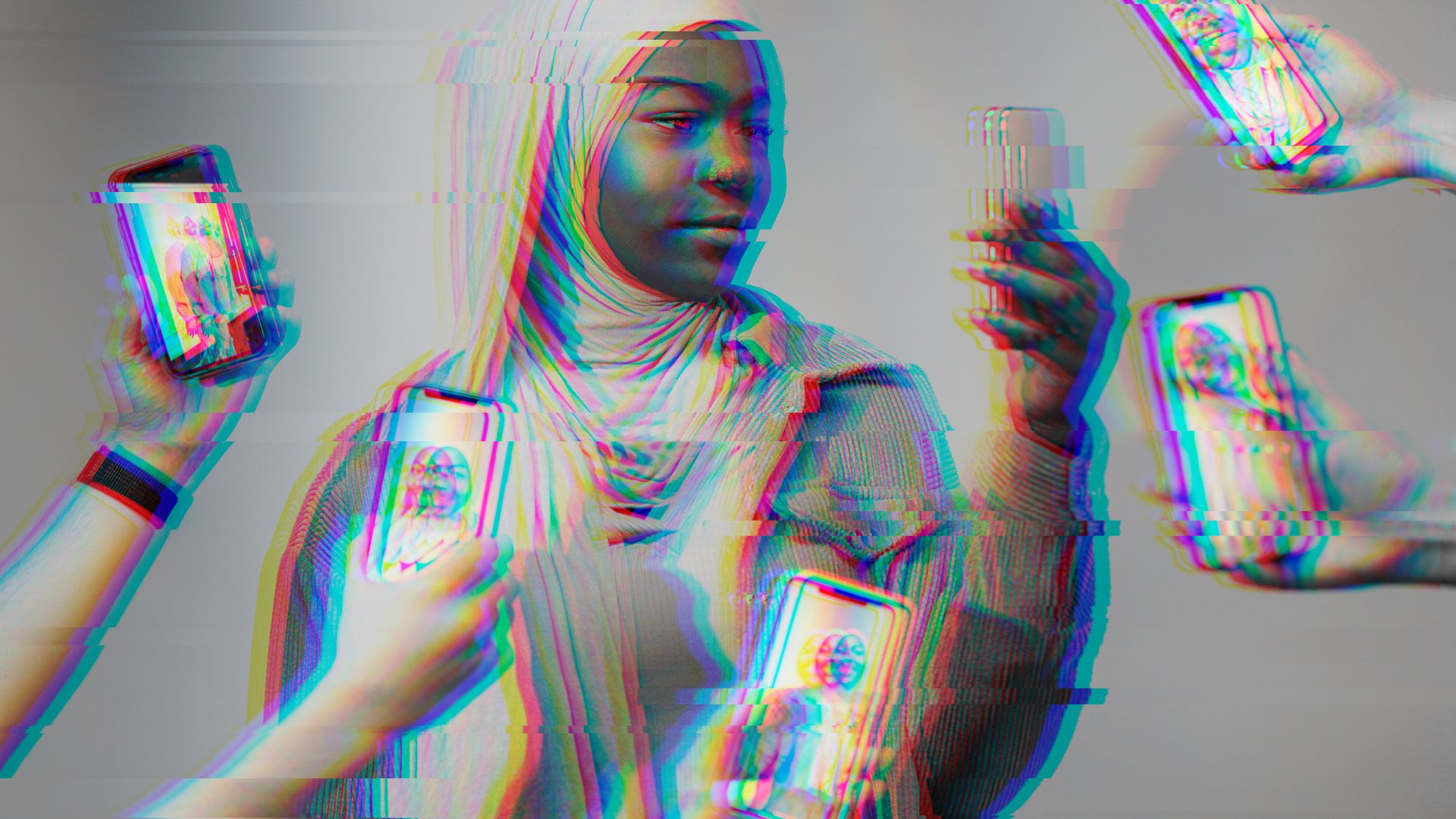Hidden Cameras, Deepfakes, Stalkerware: Why Digital Violence Against Women is Rising
This year’s 16 Days of Activism campaign is confronting the worrying rise of online abuse against women


Celebrity news, beauty, fashion advice, and fascinating features, delivered straight to your inbox!
You are now subscribed
Your newsletter sign-up was successful
It’s easy to slip into despair when thinking about gender-based violence: the numbers are grim, the prevalence shameful. However, UN Women’s 16 Days of Activism, running from today (November 25th, International Day for the Elimination of Violence Against Women) to December 10th, Human Rights Day, is both a rallying cry and a reminder of the progress made, as well as the urgent work still ahead.
This year, the focus on digital violence feels especially urgent. UN Women’s 2025 theme, UNiTE to End Digital Violence Against All Women and Girls, reminds us that gender-based violence isn’t just physical; it’s now embedded in our devices, apps, and online networks.
Refuge’s data paints a stark picture. In the first nine months of 2025, referrals to their Technology-Facilitated Abuse and Economic Empowerment Team rose by 62% compared with the same period last year. By September, they had already surpassed the total number of cases for the entire year of 2024.
Spycam surveillance is now reported in the majority of cases: hidden microphones, cameras tucked inside household fittings, and devices disguised as harmless objects are forming part of a growing web of insidious abuse.
It made me feel frightened – like he knew exactly where I was, who I was with, and what I was doing at all times.
Lynda, a survivor of tech-based abuse
Every day, more and more women and girls are coming to the unnerving realisation that their creeping sense of being watched was all too real. One survivor, Lynda, described finding a tiny camera on a soundbar and another hidden in a light switch. “It really unsettled me” she told Refuge, “It made me feel like I was living in some sort of Truman show. Like it wasn’t my real life.”
This type of abuse often comes not from strangers, but from partners, ex-partners, and even family members. It includes stalkerware, deepfake pornography, and control over online finances, forms of harm that change lives but rarely make headlines. Even high-profile cases, like prolific cyberstalker Matthew Hardy, who harassed at least 62 women for over a decade before facing justice, highlight the gaps in awareness and action.
Refuge warns that often digital abuse is not only unreported but unrecognised. The quieter, relentless nature of tech abuse makes it difficult to define, let alone prosecute. Emma Pickering, Head of Refuge’s Technology-Facilitated Abuse Team, explains that spyware tools are cheap, accessible, and increasingly normalised, while laws and regulations meant to protect women remain several steps behind. “Tech-facilitated abuse is hugely underreported by police forces, statutory services, and survivors themselves, meaning the true scale of this crisis is still largely hidden from view,” adds Pickering.
Celebrity news, beauty, fashion advice, and fascinating features, delivered straight to your inbox!
Ending violence against women and girls now means recognising that threats aren’t only physical, they are digital and economic, embedded in the devices we have become reliant on and in networks we can’t simply shut off.
Up to 95% of deepfake videos online are non-consensual pornographic images, and 99% of the people targeted in that content are women.
United Nations
As 16 Days of Activism begins, I think less about all-to-arms slogans and more about the women navigating this new terrain of abuse: checking their own homes for cameras, changing online bank apps, questioning whether their unease is paranoia or something more worrying. Ending violence requires legislation, regulation, and investment, but it also requires acknowledging digital abuse as a present, widespread, deeply gendered issue, not a fringe concern. A 2023 report from Kapersky, a global cybersecurity firm, found that 42% of Brits think it’s acceptable to monitor their partner digital without their consent. More worrying still: the UK now ranks as the third-most affected country in Europe for stalkerware on mobile devices; the most common form of cyberstalking, which is also considered a gateway to domestic abuse.
Refuge says that what they see is likely just the tip of the iceberg. Technology is evolving faster than laws and policies, and the harm that women experience is compounded when the support to tackle it is fragmented and underfunded.
This is why 16 Days of Activism matters now more than ever, especially as it reminds us that unity is essential. Ending gender-based violence means confronting digital abuse head-on, holding perpetrators accountable, and challenging the systems that let abuse thrive; that responsibility doesn’t sit alone with women.
What Are The Warning Signs?
- Unusual battery drain, apps you didn’t install, or settings you didn’t change
- Someone knowing things they shouldn’t about your location or activities
- Unexpected account logins or password changes
- Devices behaving strangely (freezing, camera light turning on, etc.)
Think You Might Be a Victim of Digital Abuse?
- Refuge’s Tech Safety Team offers confidential guidance on digital stalking, spyware, hacked accounts, and more.
- Contact the National Domestic Abuse Helpline (24/7): 0808 2000 247.
Know Your Rights
- UK law protects against stalking, harassment, cyberstalking, revenge porn, and hacking.
- You may be able to get a restraining order or take legal action.

Mischa Anouk Smith is the News and Features Editor of Marie Claire UK, commissioning and writing in-depth features on culture, politics, and issues that shape women’s lives. Her work blends sharp cultural insight with rigorous reporting, from pop culture and technology to fertility, work, and relationships. Mischa’s investigations have earned awards and led to appearances on BBC Politics Live and Woman’s Hour. For her investigation into rape culture in primary schools, she was shortlisted for an End Violence Against Women award. She previously wrote for Refinery29, Stylist, Dazed, and Far Out.